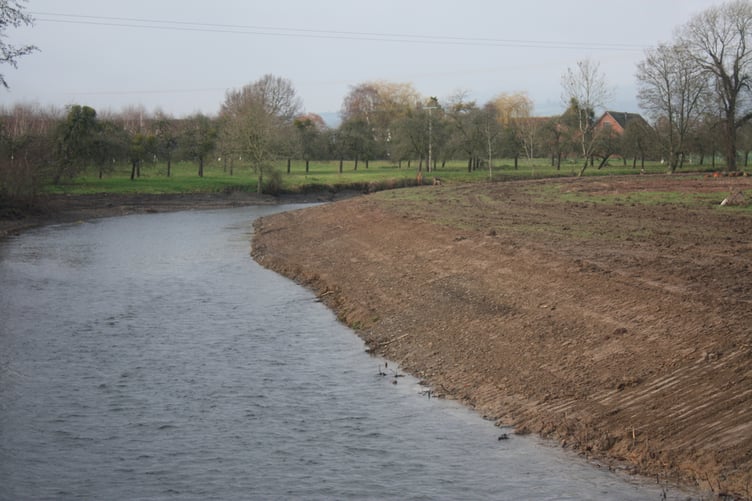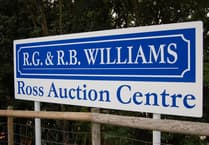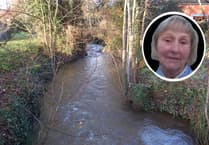A 68-YEAR-OLD farmer who bulldozed a Wye tributary Site of Special Scientific Interest has been jailed for a year.
Natural England and the Environment Agency welcomed the seriousness with which District Judge Ian Strongman treated the severe and lasting damage to the River Lugg, which enters the Wye between Ross-on-Wye and Hereford.
Farmer and landowner John Price destroyed habitats and wildlife on a stretch of one of the country’s most unspoiled rivers, Kidderminster Magistrates Court was told on Thursday (April 20).
The judge described it as “ecological vandalism on an industrial scale” and also ordered Price to pay prosecution costs and Wildlife and Countryside Act restoration payments of more than £1.2m.
He was also disqualified from being a director of a limited company for three years.
The court heard he has a long history of “uncooperative and sometime unlawful” behaviour regarding the local environment, stretching back 25 years and including piling rubble beside the river, removing tons of gravel fron the waterway and creating a dam.
The sentence is the result of legal action launched last year by Natural England and the Environment Agency following a joint in-depth investigation into environmental harm caused by the work in 2020 and 2021.
Mr Price used heavy machinery including bulldozers and excavators to illegally dredge and reprofile a 1.5km stretch of the Lugg at Kingsland, Herefordshire, destroying the riverbed and banks.
The unconsented works were in breach of several regulations, including the Reduction and Prevention of Agricultural Diffuse Pollution (England) Regulations 2018, also known as the Farming Rules for Water; and operations prohibited in the notification of a Site of Special Scientific Interest (SSSI), which persisted despite Mr Price being issued with a Stop Notice.
Due to the exceptionally high diversity of wildlife, the Lugg is a designated SSSI, with 121 river plant species that live in the river and provide habitat for invertebrates, fish and birds.
The court heard the damage to the river and banks removed the habitats of hundreds of these species including otters, kingfishers and salmon as well as destroying trees, aquatic plant life and invertebrates.
It is predicted to take decades to re-establish mature trees to provide the stability, cover and shade to restore the diversity of the river.
Fish, plants, native crayfish and birds may take years to make a gradual return to previous populations.
The judge noted that neither the Environment Agency nor Natural England did anything to encourage these works.
Speaking after the verdict, Emma Johnson, Area Manager for Natural England, said: “The destruction of this section of the River Lugg was devastating for the abundance and range of species which thrived in this river.
“The River Lugg is one of the most iconic rivers in the UK and to see this wanton destruction take place was devastating.
“This is why we have used our powers as regulators to see that justice was done and to act as a stark warning to others that we will take the strongest action against those who do not respect the laws that protect the environment and wildlife we all cherish. “We want to ensure that Mr Price now takes the necessary actions which we hope, in time will restore this much-loved stretch of river to its former condition.”
Martin Quine, Environment Agency Place Manager for Herefordshire, added: “We welcome the outcome of this prosecution for the unconsented works on the River Lugg.
“The Environment Agency is working hard to restore the health of our rivers. It is a complex task that can only be achieved in partnership with landowners.
“We provide advice and guidance but will impose sanctions or prosecute where appropriate to protect the environment and ensure those who breach regulations are held to account.
“The vast majority of landowners and users fully cooperate with this process.
“While Mr Price’s justification for the works was to help prevent flooding to local properties, his actions did not have any flood prevention benefit. The destruction of river banks is not appropriate flood management.”





Comments
This article has no comments yet. Be the first to leave a comment.